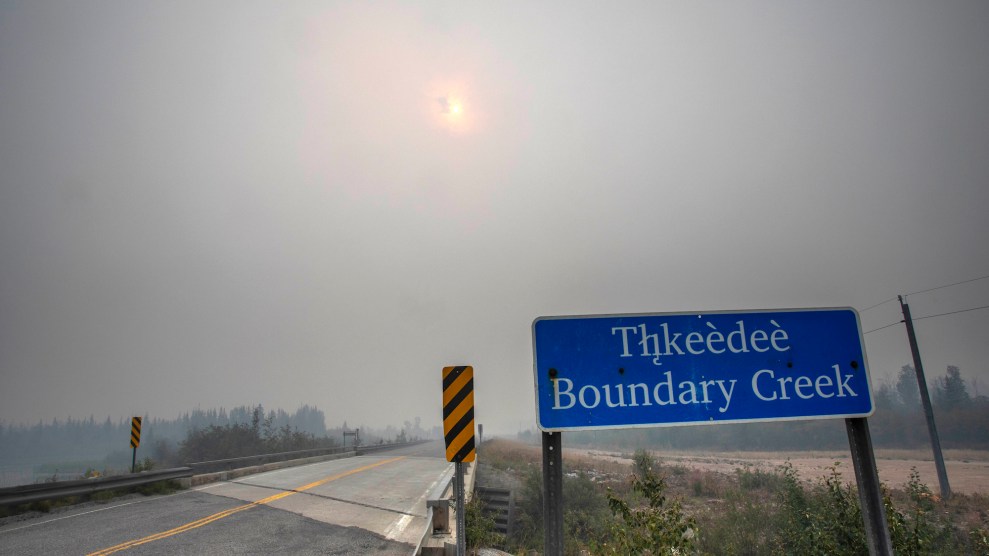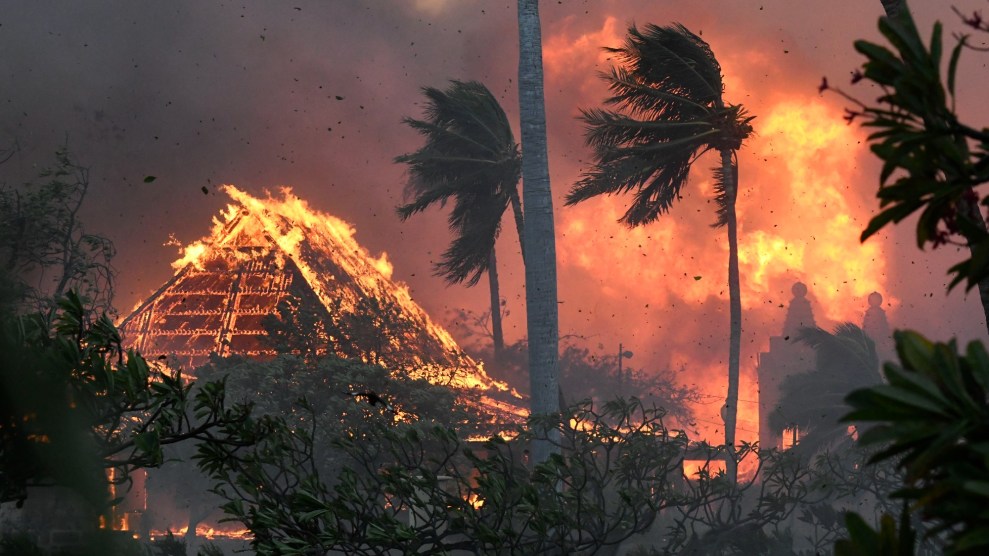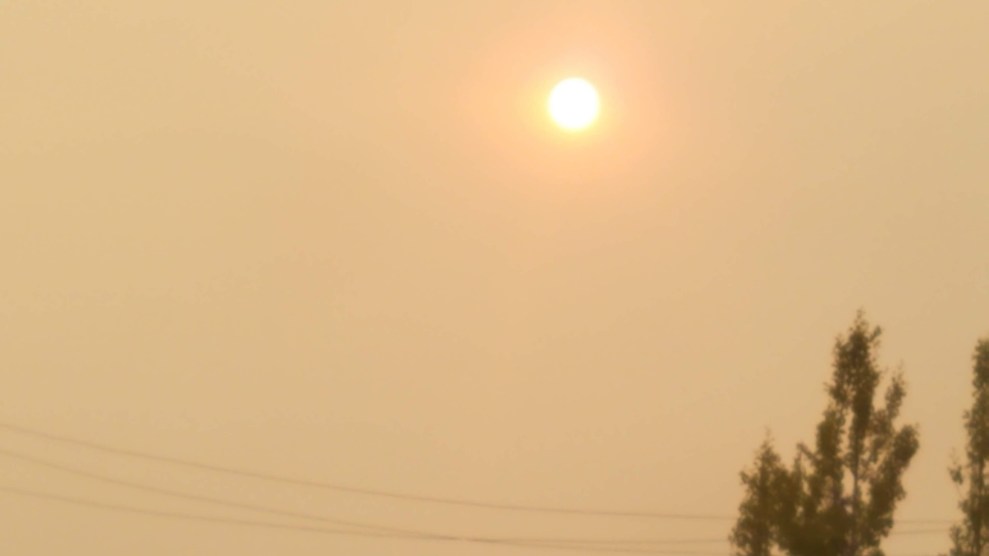
Artur Widak/AP
This story was originally published by Grist and is reproduced here as part of the Climate Desk collaboration.
Smoke from wildfires across the continental US is stalling—in some places, reversing—years of progress on air quality.
A new study published in Nature found that since 2016, wildfire smoke has undone 25 percent of air quality improvements achieved since 2000. “We’re not back to 2000 levels. But in some parts of the country we’re headed in that direction,” said Marshall Burke, the study’s lead author and professor of environmental policy at Stanford University.
That’s concerning because previous studies found that wildfire smoke is bad for human health. It’s not just that it exacerbates respiratory illnesses like asthma; breathing in wildfire smoke is also associated with an increased risk of cancer, heart attacks, and preterm birth. “Basically we find that there is no safe level of exposure,” Burke said.
His latest study found that air pollution varied by state—in Oregon, wildfire smoke has become so severe as to erase much of the air quality progress of the past two decades.
The problem isn’t limited to the West. Burke noted that the study found smoke influenced pollution levels even in the South, Midwest, and Northeast—regions where wildfires are far less common. “The influence of wildfire smoke is broad, and it is affecting populations that did not used to be affected,” Burke said. “We are seeing influence in states that basically have none of their own wildfires. They are getting affected by wildfires from thousands of miles away.”
The new study analyzed data up to 2022, meaning it didn’t include any data from the Canadian wildfire smoke that shrouded New York City in an orange haze earlier this year, nor the air pollution produced by the West Maui wildfire last month, the deadliest in modern US history.
Researchers used ground and satellite-based data that was only available comprehensively for the 48 contiguous states, Burke said. The study also notes that air pollution from wildfires is not currently included under any federal air quality regulations.
The number of wildfires globally is expected to grow by 50 percent by 2100, according to a report published by the United Nations Environmental Programme and the Norway-based environmental nonprofit group GRID-Arendal last year.
One key factor behind the increase in US wildfire pollution is climate change. But another reason is poor land management. A recent study found that prescribed burns could reduce wildfire smoke exposure in California. Such intentional burns have been used to manage forests by Indigenous communities there for thousands of years. But in 1850, the US government outlawed such fires.
That’s a key reason why so many forests are carpeted with layers upon layers of ready fuel. In the Sierras, “it is just remarkable how much dead trees and dead wood there is in the forest,” Burke said.
“Parts of the forest you literally can’t walk through because of the accumulated fuel,” he said. “So that stuff is just ready to go if it’s hot and you get a spark.”
California has more recently changed its stance, making it easier for Indigenous cultural practitioners to engage in controlled burns, but there are still a lot of hurdles to conducting prescribed burns, including fears of legal liability and the vastness of the forests themselves. Meanwhile, Indigenous communities are among those exposed to a disproportionate amount of wildfire smoke.
In addition to changing land management policies, there are also things that people can do personally to help protect the health of themselves and their families. Heidi Huber-Stearns is a researcher at the Western Forest and Fire Initiative at the University of Michigan School for Environment and Sustainability. She recommends people go to AirNow.gov to see current data on air quality in their communities. The Environmental Protection Agency also provides a smoke-ready toolbox with suggestions for how to protect your health, such as creating your own indoor air-cleaning device.
But Huber-Stearns adds that not everyone faces the same risk from wildfire smoke. Like Native peoples, outdoor workers and unhoused people are more likely to be exposed to air pollution. People without access to technology and non-English speakers are less likely to benefit from existing resources.
“Not only are these issues prevalent, there are some pretty major equity and access concerns as to who can get what kind of support for navigating smoke events as well,” she said.
















